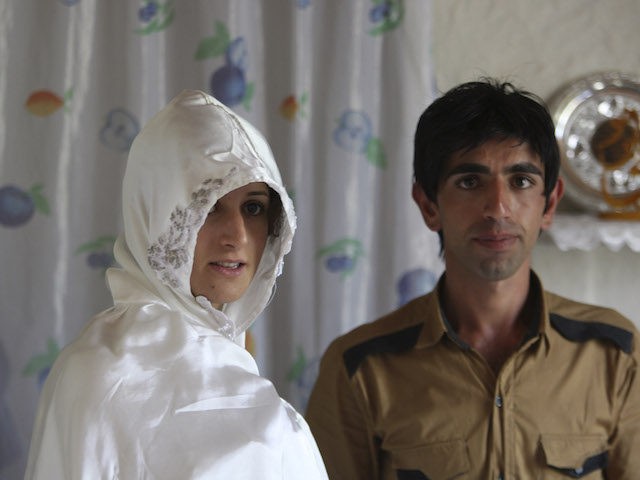The Iranian regime, facing one of the steepest drops in fertility in the world, rolled out a government-approved matchmaking app for smartphones this week.
The app, as described by Reuters on Monday, seems like a tacit admission that the Iranian theocracy’s strict rules against casual contact between young singles are fueling a demographic collapse:
Hamdam (Companion), developed by a state-affiliated Islamic cultural body, requires users to verify their identity and carries out psychological compatibility tests and gives advice for young singles seeking a marriage partner.
The app offers matching and counselling services to prospective couples and their families, and remains in touch with them for four years after marriage, the semi-official news agency Fars reported.
Western-style dating is banned under Iran’s Islamic laws but many young people reject traditional arranged marriages and want to decide their own future.
Iran, like China, is discovering that authoritarians cannot easily reverse demographic decline by simply ordering their people to have more babies.
As Reuters noted, Iranian Supreme Leader Ayatollah Ali Khamenei issued a religious edict urging his captive people to multiply so they could “strengthen the national identity” of Iran and combat “undesirable aspects of Western lifestyles” in 2014.
Military commanders pitched in by instructing their troops to have more children – at least five, according to the deputy commander of the elite Islamic Revolutionary Guard Corps (IRGC) – but fertility rates went over a cliff in the ensuing years, dropping by about 25 percent.
Iran’s fertility bust has been attributed by outside observers to an economy in endless recession, rising unemployment, rampant drug addiction, and the tendency of urbanization to prompt young people to prioritize career over family. A sense of anxiety, despair, and futility hangs over the younger generation, greatly dampening its desire to get married early and raise large families.
Another interesting contrast with China’s demographic crisis is that Iran also imposed population control measures decades ago, at a time when explosive population growth and fertility rates of 7 or higher were seen as a problem. The rate is now 1.7 or less, but as with the Chinese Communist Party, Iran’s authoritarian rulers are finding it unexpectedly difficult to reverse the effects of vigorous “family planning” initiatives.
Iran is on track to have the oldest demographics in the Middle East by 2050, a prospect Khamenei described as “horrifying bad news” in June. In addition to bringing the economy even further down as the percentage of young workers to older retirees shrinks, the fertility decline is seen as deeply embarrassing and a hindrance to Iran’s aspirations of leadership in the Islamic world, which is one reason the regime claims it has been victimized by a Western conspiracy to reduce its marriage and childbirth rates.
The Iranian parliament stepped in with financial incentives for childbirth, but the decline continued. A new package of “population growth” incentives introduced in March – including payouts for marriage, bonuses for having more than two children, and more restrictions on abortion – is pending approval by the theocratic Guardian Council, which ensures all new legislation is compatible with Islamic law.
Iranian officials began talking up the Hamdam dating app last week with a push from the regime’s Tebyan cultural center, which presented it as a shield against sinister Western efforts to attack Iranian family values.
Iranian parliament speaker Mohammad Baqer Qalibaf held a press conference last week at which he pledged the Hamdam app would bring “rationality and awareness” to matchmaking while fully respecting “Islamic principles.”
Hamdam’s page on the Tebyan website makes it look more like an especially confusing mobile game than a dating app for lonely singles. It probably will not convince many Iranian kids to loosen up and mingle more freely. The screen is covered with buttons and sliders to measure the applicant’s personality traits and matchmaking needs. It does not allow photographs, because officials deemed them “soulless,” “manipulative,” and “not a good reason to reject or accept anyone.”
The National noted that Iran already has some dating apps, but they are all technically illegal. Hamdam is the only state-sanctioned matchmaking service.
The National noted that after a match is made, Hamdam “introduces the families together with the presence of service consultants” who “accompany the couple for four years after marriage.” That sounds like just the ticket for convincing anxious and depressed Iranian youths to dive into long-term relationships.

COMMENTS
Please let us know if you're having issues with commenting.